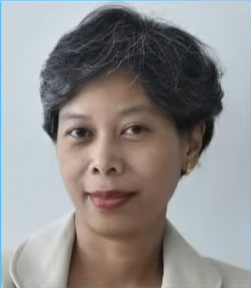
DR. THERESIA INDIRA SHANTI
Atma Jaya Catholic University of Indonesia
Host Institution: Sophia University, Japan
Being in another country enhances my knowledge and perspective. Specifically, I came to discuss our research collaboration topic related to culture, particularly differences in mental health resiliency between Indonesian and Japanese people. This visit opens the possibility of future collaborations.
Several ideas came from a joint study on the differences between Japanese and Indonesian people in mental health literacy and interacting directly with Japanese culture at the symposium held on the fourth day of the visit to Sophia University. First related to efforts to improve the mental health of Indonesian people, and secondly related to the socialization of social norms in Indonesian society.
Not all Indonesians understand mental health. Indonesia’s limited number of psychiatrists and psychologists impacts people’s reach, especially in remote areas where it is still difficult to access psychiatrists and psychologists. Limited financial resources also compound this difficulty of access. As a result, not many people know that health professionals are professionals. Moreover, their role is not only limited to the curative and rehabilitative sides but also to the promotive and preventive sides.
On the other hand, Indonesian people, known to join religious communities generally, easily reach their spiritual leaders. One of our joint studies shows that religious coping is an effective method used by Indonesians. This situation shows that many people still come to spiritual leaders with psychological problems. Spiritual leaders are easy to reach because of the location and cost (because people generally do not have to pay a fee for their spiritual leader), and the people already know and trust them. So far, spiritual leaders use various methods that cannot be categorized as scientific to restore people’s mental health (e.g., expelling demons, using witchcraft, “pasung”). So, if the government facilitates systematic efforts to educate spiritual leaders about people’s mental health, how and when they should refer the public to professional health workers. Thus, gradually, people know when they should come to spiritual leaders and when they come to health professionals.
Second, observing and interacting with Japanese people made them aware of the discipline. The discipline put in the rules and efforts to maintain regulations for the common good (not only for their interests) has been embedded since they were small because it was carried out in daily life. The model in the form of parents and the community, facilitated with firmness by the government, made this habit possible and became one of their excellent cultures. Indonesian society is still struggling to keep regulations embedded and become internal motivations so that they are not only carried out when there is external motivation. The existence of a spiritual leader who is trusted and imitated by some Indonesian people can undoubtedly be used to move this culture or habit. In this part of society, the rules of spiritual leaders will be more heard and followed. Meanwhile, for some other people, namely, those not seen much in the religious community, strict government regulations accompanied by implications and facilities for implementing these regulations are needed. After all, these ideas arise when there is direct interaction with their culture. Therefore, this program is beneficial.
On the first few days of my arrival, I had the opportunity to tour the city and experience the Japanese festival. I also discussed our collaborative research, particularly with Prof. Mitsuru Hisata and his students.
The 3rd of November was a National holiday in Tokyo. And some students of Professor Mitsuru Hisata were kind enough to tour me around, spending the day sightseeing and feeling the culture itself including Japanese food and traditional costumes and dances. Although the Japanese say that they are not religious, they trust that God is everywhere and come to God when needed.
I thank my host institution, Sophia University Japan, for the warm welcome and accommodation provided to me as a visiting scholar from Indonesia.
